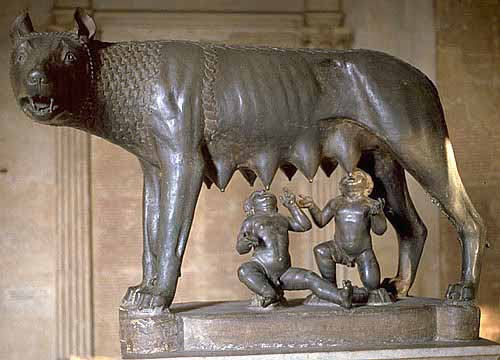I was waiting all week for Saturday’s seminar, since history is my favorite subject I was really excited to get inside the classroom and learn something new. The seminar was to brush up on our Roman history and also for us to turn in our Roman history timelines. Mr. Dundov started out the class by showing us a colosseum that he had on his wall in the classroom and then he asked us which country we thought it was in. The colosseum he showed us was located in Croatia where he was from and it looked just like the colosseum in Rome. It instantly made me wonder if the Romans had built that colosseum and if they did build that colosseum how many more did they build and where? What else did they contribute to countries around them and what influences did they have on them? I had so many questions and there was only three hours until the class was over.
 |
| Photo Cred : Alamy |
I just want to say that Mr. Dundov was amazing! He made it so interesting to listen to him talk and he was very interactive with us. His computer would freeze a lot in between slides so he would go around the room asking us all why we wanted to go to Rome. He even let us have a little gallery walk with all of our timelines out to see all the great work. Then it was time to get down to business Mr. Dundov started off by telling us how Rome was founded according to the myth of Romulus and Remus. Romulus and Remus were two brothers who were raised by a wolf Romulus kills Remus and then finds Rome and names it after himself. We then learned that there were many civilizations that lived in Rome but it the Etruscan's who later became the Romans made the most impact on Rome with their writing, religion and architecture. The Roman Empire was under a republic type of government which was ruled by the Patricians (rich) and the Plebeians (poor). In the governments infrastructure there were two Consuls who were the rulers of Rome, the senate who were representatives for the patricians, and then the tribal assembly who were the representatives for the plebeians. When Julius Caesar went from being a consul to an emperor that’s when Rome switched from being a republic to a monarchy. Then we learned about the twelve tables which were the first written laws that provided political and social rights for the plebeians (citizens). In my sophomore history class I learned that The United States was influenced a lot by the twelve tables when it came to writing the bill of rights. It’s interesting to know that the Romans are still a huge influence on us today. If it weren't for their advances in engineering we wouldn't have everyday necessities like; sewage systems, dams, cement roads, and aqueducts. These are all things that we use every day and they are important for our daily life. So much information to take in but, Mr. Dundov was so lively in the way he was explaining it that it was actually really fun to listen to him.
 |
| Photo Cred : Google Images |
What interested me the most about the seminar is when we started talking about the role Christianity had in Roman history. Constantine made Christianity the official religion of the Roman Empire. I found it ironic that the Romans would forcibly spread Christianity throughout the Roman Empire after they were the ones that crucified Jesus Christ. Mr. Dundov explained that because the Roman Empire consisted of so many countries they need to unify them all in some way. Christianity preached that if you lived a hard life on earth but worshipped God when you die you will be rewarded by entering the kingdom of heaven. The Romans used this as an incentive to get all the countries to assimilate to Roman rule by promising them that when they died they would be rewarded by entering the kingdom of heaven where there is eternal peace. Mr. Dundov said that they even started to sell tickets to heaven to ensure citizens they had a spot in heaven when they died. Being that I am Roman Catholic it makes me feel more connected knowing the history of my religion.
Many things became clear to me, after Mr. Dundov’s seminar, that were confusing while doing the research for my timeline The legacy of the Roman Empire lives and continues on because we still use their advances in architecture, engineering, technology, politics, religion, and language. That is quite a legacy to leave behind if you ask me. I gained another great experience with this scholarship process.
-Courtney Bucknor









0 comments:
Post a Comment